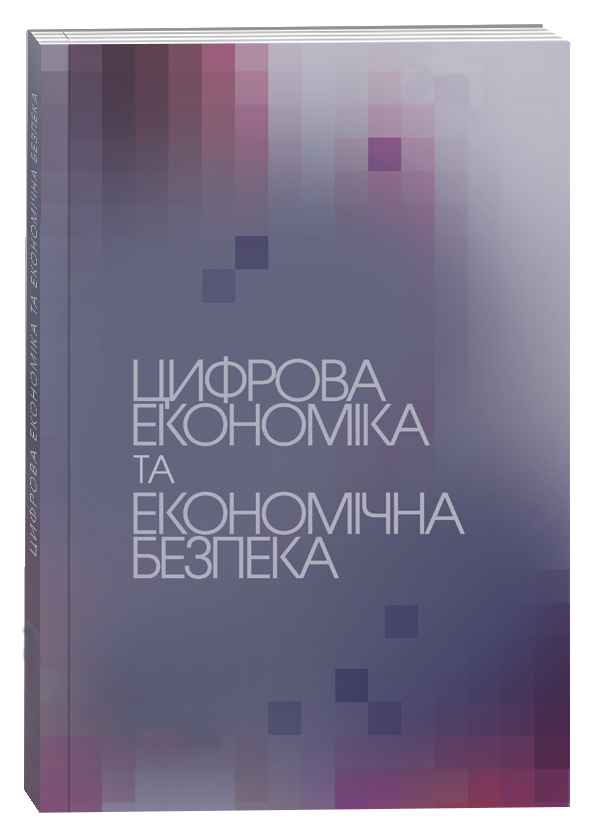USAGE ISSUES OF ARTIFICIAL INTELLIGENCE FOR INFORMATION SECURITY PURPOSES IN EDUCATIONAL FIELD
Abstract
The article highlights the problems of the rapid development of artificial intelligence, which is rapidly changing the scientific and educational space, causing excitement and concern. The provoked discussions on the implementation of large language models (LLM), such as GPT from OpenAI, their use in teaching, scientific activities and everyday life are highlighted. The accessibility of technologies based on artificial intelligence is investigated, which allows anyone to create texts, images, music, but also gives rise to ethical and legal issues. In the field of cyber security, artificial intelligence has been highlighted as playing a controversial role. The issue of the emergence of hacker groups that adapt artificial intelligence to break into various systems, which complicates the fight against cybercrime, is pointed out. The ethical question is raised regarding the legality of using artificial intelligence to attack back the attackers. The issue of academic integrity, which is currently suffering from the use of AI-generated texts, is raised and highlighted. Opinions on the spread of pseudoscientific materials are highlighted, as well as an analysis of attempts of creation of algorithms to identify AI-generated texts. The role of artificial intelligence in the formation of future educational methodologies and its impact on traditional pedagogical values and approaches are considered. Ongoing philosophical discussions around AI are identified, relating to its potential autonomy and ability to change society in the future. Ethical issues related to algorithmic bias and the need for transparency in AI-driven decisions are emphasized. The potential risks of manipulating AI for disinformation campaigns and its role in shaping public discourse are also considered. A theoretical study of providing AI with access to vast amounts of information and uncontrolled development, which may lead to undesirable consequences, is conducted. As artificial intelligence continues to develop under the power of humanity, the need for interdisciplinary research to address the multifaceted challenges it creates is emphasized, calling for collaboration between different research areas, such as technological and ethical, to establish guiding principles for the responsible use of artificial intelligence. Possible directions for further research and use of artificial intelligence by humanity are summarized.
References
Ілійчук Л. Штучний інтелект і якість освіти: можливості, виклики та загрози. Науково-педагогічні студії. 2024. № 8. С. 232-248. DOI: https://doi.org/10.32405/2663-5739-2028-8-232-248 (дата звернення 12.01.2025)
Годецька Т. (2024). Штучний інтелект як ефективна технологія інформаційно-аналітичного супроводу цифрової трансформації освіти. Науково-педагогічні студії. 2024. № 8. С. 200-216. DOI: https://doi.org/10.32405/2663-5739-2028-8-200-216 (дата звернення 12.01.2025)
Папач О.І., Горожанкіна О.Ю., Різак Г.В Аналіз ролі штучного інтелекту у впровадженні диференційованого підходу до навчання. Інформаційно-комунікаційні технології в освіті. 2024. DOI: https://doi.org/10.5281/zenodo.13827888 (дата звернення 12.01.2025)
Ali Borji. A Categorical Archive of ChatGPT Failures. 2023. DOI: https://doi.org/10.48550/arXiv.2302.03494 (дата звернення 11.02.2025)
Kukkala V.K., Thiruloga S.V., Pasricha S.; Iranmanesh A. AI for Cybersecurity in Distributed Automotive IoT Systems - Frontiers of Quality Electronic Design (QED): AI, IoT and Hardware Security. Springer International Publishing. 2023. P. 297 - 326
Cotton D. R. E., Cotton P. A., Shipway J. R. Chatting and cheating: Ensuring academic integrity in the era of ChatGPT. Innovations in Education and Teaching International. 2023. Vol. 61(2). P. 228–239. DOI: https://doi.org/10.1080/14703297.2023.2190148. URL: https://www.tandfonline.com/doi/full/10.1080/14703297.2023.2190148 (дата звернення 11.02.2025)
Eaton S. E., Brennan R., Wiens J., McDermott B. Artificial intelligence and academic integrity: The ethics of teaching and learning with algorithmic writing technologies. 2023. URL: https://prism.ucalgary.ca/handle/1880/115769 (дата звернення 01.02.2025).
Pickell, Travis Ryan and Doak, Brian R. Five Ideas for How Professors Can Deal with GPT-3 ... For Now". Faculty Publications - George Fox School of Theology. 2023. P. 432. URL: https://digitalcommons.georgefox.edu/ccs/432 (дата звернення 03.02.2025)
Kurian N., Cherian J. M., Sudharso, N. A., Varghese K. G., Wadhwa S. AI is now everywhere. British Dental Journal. 2023. Vol. 234(2). P. 72–72. DOI: https://doi.org/10.1038/s41415-023-5461-1 (дата звернення 13.02.2025)
Iliichuk L. (2024). Shtuchnyi intelekt i yakist osvity: mozhlyvosti, vyklyky ta zahrozy [Artificial intelligence and the quality of education: opportunities, challenges, and threats]. Naukovo-pedahohichni studii, no. 8, pp. 232-248. DOI: https://doi.org/10.32405/2663-5739-2028-8-232-248 (accessed 12.01.2025)
Hodetska, T. (2024). Shtuchnyi intelekt yak efektyvna tekhnolohiia informatsiino-analitychnoho suprovodu tsyfrovoi transformatsii osvity [Artificial intelligence as an effective technology of information and analytical support of digital transformation of education]. Naukovo-pedahohichni studii, no. 8, pp. 200-216. DOI: https://doi.org/10.32405/2663-5739-2028-8-200-216 (accessed 12.01.2025)
Papach O.I., Horozhankina O.Yu., Rizak H. V (2024). Analiz roli shtuchnoho intelektu u vprovadzhenni dyferentsiiovanoho pidkhodu do navchannia [Analyzing the Role of Artificial Intelligence in Implementing a Differentiated Approach to Education]. Informatsiino-komunikatsiini tekhnolohii v osviti. DOI: https://doi.org/10.5281/zenodo.13827888 (accessed 12.01.2025)
Ali Borji (2023, March 7) A Categorical Archive of ChatGPT Failures. DOI: https://doi.org/10.48550/arXiv.2302.03494 (дата звернення 11.02.2025)
Kukkala V.K., Thiruloga S.V., Pasricha S.; Iranmanesh A. (2023) AI for Cybersecurity in Distributed Automotive IoT Systems - Frontiers of Quality Electronic Design (QED): AI, IoT and Hardware Security. Springer International Publishing, pp. 297 - 326
Cotton D. R. E., Cotton P. A., Shipway J. R. (2023). Chatting and cheating: Ensuring academic integrity in the era of ChatGPT. Innovations in Education and Teaching International, vol. 61(2), pp. 228–239. DOI: https://doi.org/10.1080/14703297.2023.2190148. Available at: https://www.tandfonline.com/doi/full/10.1080/14703297.2023.2190148 (accessed 11.02.2025)
Eaton S. E., Brennan R., Wiens J., McDermott B. (2023) Artificial intelligence and academic integrity: The ethics of teaching and learning with algorithmic writing technologies. Available at: https://prism.ucalgary.ca/handle/1880/115769 (accessed 01.02.2025).
Pickell, Travis Ryan and Doak, Brian R. (2023) Five Ideas for How Professors Can Deal with GPT-3 ... For Now". Faculty Publications - George Fox School of Theology, p. 432. Available at: https://digitalcommons.georgefox.edu/ccs/432 (accessed 03.02.2025)
Kurian N., Cherian J. M., Sudharso, N. A., Varghese K. G., Wadhwa S. (2023). AI is now everywhere. British Dental Journal, vol. 234(2), pp. 72–72. DOI: https://doi.org/10.1038/s41415-023-5461-1 (accessed 13.02.2025)
